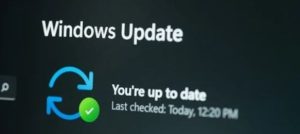Microsoft has released new pre-build versions of Windows 11 (versions 22H2 and 23H2), numbered 22621.3520 and 22631.3520, for Windows Insider program participants in the Release Preview channel.

The full assembly numbers are:
10.0.22621.3520.ni_release_svc_prod2.240405-1745 and 10.0.22631.3520.ni_release_svc_prod2.240405-1745.
This update includes several changes, including:
- A new Mobile Device Management policy called “AllowScreenRecorder”, which allows administrators to control screen recording in applications.
- Support for Arm64 MSI files through Group Policy Objects (GPOs), allowing the installation of these files on Arm64 devices using the Group Policy Management Console (GPMC).
- Fix for an issue with the netstat -c command, which was inefficiently handling port exhaustion problems.Fixed an issue affecting the low-latency network operation when enabling timestamps for TCP connections, which caused a significant decrease in data transfer speed.
- Fixed a system boot failure when configuring the bootloader for multiple operating systems.
Addressed an issue affecting accelerator backup storage management and causing memory leaks on certain devices. - This update improves media allocation for hardware installations, reduces memory overruns, and increases operational efficiency.
- Resolved periodic name resolution failures when configuring DNS for WSL2.
- Corrected display of Japanese keyboard layout 106 while logging in with the touch keyboard.
- Eliminated duplicate print queue creation for universal printers by the system.
- Updated COSA profiles for certain mobile operators.Fixed an issue with the ARP protocol returning an invalid VSID for external ports.
- Fixed a memory leak in HNS that caused high memory usage and affected service deployment and scaling.
Applications are now able to start after upgrading from a regular user to administrator mode when using a PIN for login. - HVCI now supports compatible drivers.
- The quarterly updates include changes to the Windows Kernel Vulnerable Driver Blocklist, including a list of drivers vulnerable to BYOVD attacks.
- PPL protection has been fixed to prevent bypasses.We have fixed an issue that could cause the device to crash and display a blue screen of death (BSOD) on devices that have hardware support for Bluetooth Advanced Audio Distribution Profile (A2DP).
- Microsoft have also fixed an issue where the Options app would freeze when you closed the drop-down menu. This issue has been resolved.
- Additionally, we have fixed a memory leak that occurred when getting mappings during Distributed Transaction Coordinator (DTC) operations. This problem has been fixed.
- Furthermore, we have addressed a problem with the Windows Local Administrator Password Solution (LAPS) where post-authentication actions were not being performed at the end of the grace period but instead were being performed on reboot. This issue is now resolved.
- Finally, we have resolved an issue where the Resilient File System (ReFS) was not responding to requests under heavy load, which was also affecting login speeds. This issue has now been fixed.
Assembly Availability
The Windows Insider program may be unavailable to users from Russia and Belarus, likely due to geo-blocking restrictions.